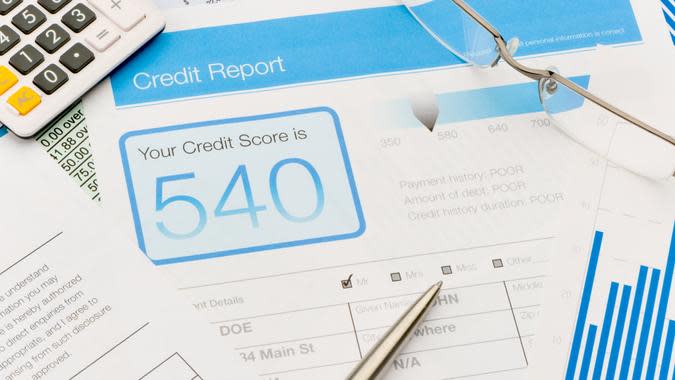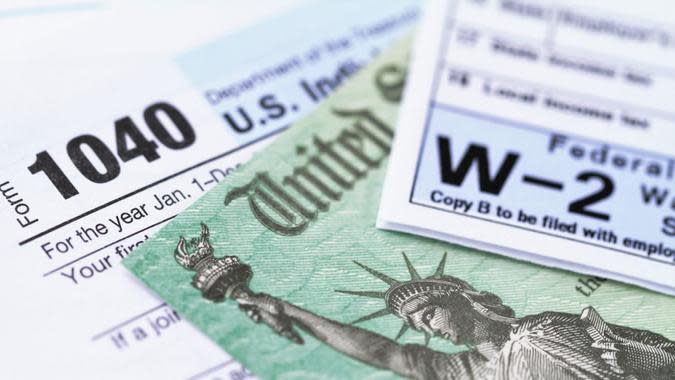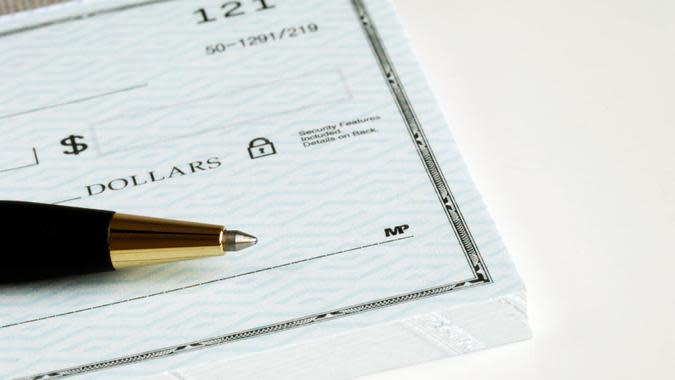Most Americans Can’t Pass This Tricky Finance Quiz — Can You?

Think you know your stuff when it comes to money, banking, and personal finance? You wouldn't be the only one. Plenty of people are confident in their money smarts, but as it turns out, that confidence is often misplaced.
I'm a Self-Made Millionaire: These Are the 6 Investments Everyone Should Make During an Economic Downturn
Find Out: How To Build a Financial Plan From Zero
GOBankingRates came up with the following six questions about the fundamentals of finance. Fewer than half of the people surveyed could answer five correctly, which is a B grade of 83 percent. Most couldn't even get a passing grade because they answered only four or fewer questions correctly for a grade of 66 or less.
Now it's your turn.
Here are the exact same six questions with the same possible answers. Some are multiple-choice, others are true and false. All deal in primary, nuts-and-bolts basics that affect the lives of average people every day.
Maybe you're as sharp as you think you are -- or maybe you'll find it's time to brush up on your financial fundamentals.
Take the quiz, see how you do.

Question
What Are the 3 Major Credit Bureaus?
Capital One, Bank of America and JP Morgan
Deloitte, KPMG and Ernst & Young
Fannie Mae, Freddie Mac, and Sallie Mae
FICO, Moody's, and Fitch
Transunion, Equifax, and Experian
Visa, MasterCard, American Express
Take Our Poll: Are You Concerned About the Safety of Your Money in Your Bank Accounts?

Answer
Transunion, Equifax and Experian
The three big credit bureaus gather financial information about individuals, maintain that information in databases, and package it into credit reports. Creditors, lenders, and sometimes even employers purchase those reports to learn about a person's debts, payment histories, and other critical information.

Question
True or false: A 401k refers to a tax credit for retirement.

Answer
False.
Although it's not a tax credit, 401k plans certainly come with tax benefits. The most common and popular employer-based retirement plan in America, 401ks allow workers to contribute pre-tax earnings directly to these special accounts -- often backed up by matching funds from their employers.
Read: These Are the 10 Most Overpriced Housing Markets in the US -- 5 Are in Florida

Question
Of the following, which describes what "APY" is?
Adjusted prices for inflation
Annual rate charged for borrowing or earned by an investment
Annual rate of return accounting for compound interest
Annualized principal payment amounts
Annuity payout per year
Automated payment

Answer
Annual rate of return accounting for compound interest.
APY stands for "annual percentage yield," and it factors in both the interest rate and the compounding period on an investment.

Question
True or false: Income does not impact your credit score.
Check Out: 10 US Cities With Plenty of Jobs and Cheap Housing

Answer
True.
Your income will always play a role in how much money you can borrow, but it doesn't factor into your creditworthiness. Lenders are concerned with things like your on-time payment history and outstanding debt, which have the biggest impact on your credit score.

Question
What does a CD offered by a bank stand for?
Capital deferment
Certificate of deposit
Collateral default
Collateralized discount
Commodity dividend
Credit dividend

Answer
Certificate of deposit
Banks issue CDs to customers looking for a safe place to park their cash for an extended period of time. In exchange for the deposit, banks pay them a modest interest rate.
See: Unplug These Appliances That Hike Up Your Electricity Bill

Question
What's the difference between a checking account and a savings account? Select all that apply.
Only savings accounts earn interest
A savings account can't be used for automatic bill pay
Only checking accounts have overdraft fees
You can only transfer money from checking accounts to savings
Checking accounts are designed for regular use
Savings accounts are designed for investing long term

Answer
You can only transfer money from checking accounts to savings and savings accounts are designed for investing long term.
A checking account is your go-to daily spending account -- it's linked to your debit card and you can write checks from it. Savings accounts pay higher interest rates, but you can only make so many withdrawals per month because they're meant to be safe havens for accumulating cash over time.
More From GOBankingRates
This article originally appeared on GOBankingRates.com: Most Americans Can’t Pass This Tricky Finance Quiz — Can You?

 Yahoo Finance
Yahoo Finance 